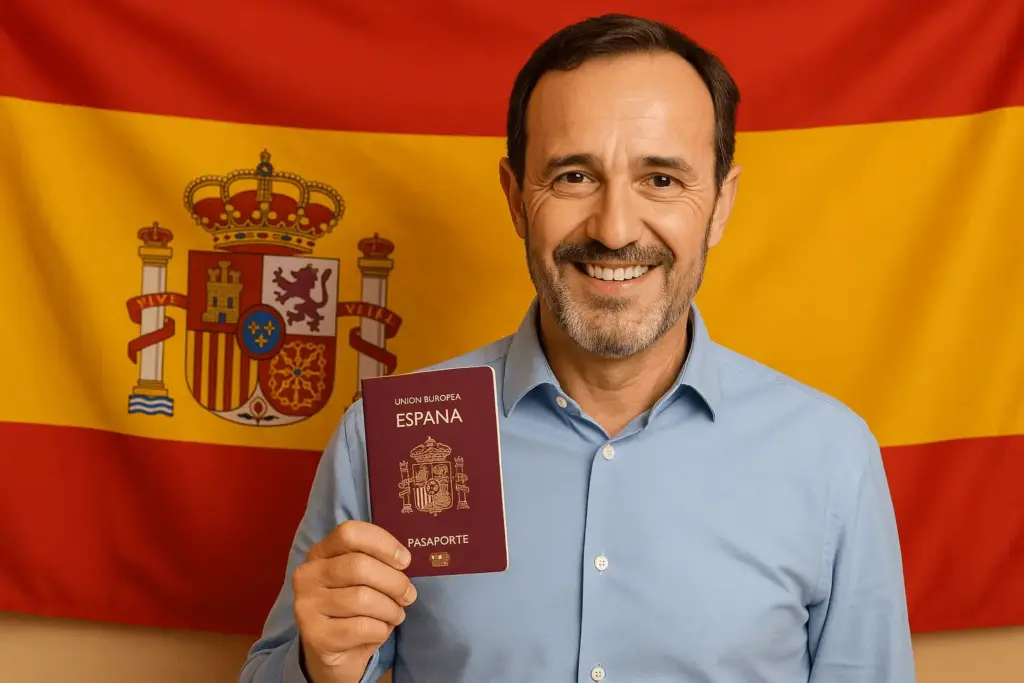In 2023, digital nomad visas became available to attract remote workers to live in Spain.
If you are a remote worker looking to take advantage of this opportunity, this article contains information on the new digital nomad visa and what it means for you.
Below is a summary of the article and the links to go directly to the answer you are looking for.
Digital Nomad Visa: what you need to work remotely in Spain:
- What is a digital nomad visa?
- What is the Start-ups Law?
- Who can get a digital nomad visa?
- What are the requirements for a digital nomad visa?
- What are the advantages of the digital nomad visa?
- How to apply for a digital nomad visa
- How long will a digital nomad visa be valid for?
- What is the difference between the digital nomad visa and the digital nomad residence permit?
- How to get a digital nomad visa or residence permit
- Having issues with getting your visa or residence permit?
The digital nomad visa is a new category of visa and residence permit allowing non-EU professionals working remotely for foreign companies independently of their location (but outside Spain), to legally live and work in Spain without needing a full work visa.
It was established by Spain’s new Start-ups Law.
On 22 December 2022, the Spanish Government adopted the Law for the Promotion of the Ecosystem of Emerging Companies (Ley de fomento del ecosistema de las empresas emergentes), better known as the Start-ups Law (Ley de Startups).
The Start-ups Law creates a new mode of residence for digital nomads: the so-called digital nomad visa, which is regulated through three articles which modify the International Mobility Law (Ley de Movilidad Internacional 14/2013 of 27 September).
It is one of the reforms of the Recovery, Transformation and Resilience Plan, and presents an attempt to attract foreign investment and talent in Spain and align the country with the European standards of excellence of the ‘EU Start-ups Nations Standard’.
The law was adopted for several purposes, including:
- facilitating paperwork for start-ups with elimination of bureaucratic obstacles and more flexible procedures,
- implementing important tax measures that reduce the tax burden on companies and entrepreneurs, and
- introducing a digital nomad visa, to encourage remote workers and digital nomads to live in Spain.
Digital nomad visas are directed at foreign remote workers from non-European Economic Area (EEA) countries that are of legal age.
EU citizens arriving from other EU countries are normally able to work remotely in Spain for up to 90 days without needing to register officially, provided they comply with their national remote work regulations and have their employment risks covered abroad (check with the Social Security Office in your home country).
- Labour or professional relationship for a minimum of three months from the date of the application with the foreign company or companies with which said relationship is maintained.
- Real and continuous activity for at least one year of the foreign company or group of companies with which the worker maintains a labour or professional relationship.
- Authorisation from the employer or, if self-employed, terms and conditions of professional activity, which is done exclusively remotely.
- Degree or equivalent professional experience of at least three years.
The introduction of the new digital nomad visa creates an opportunity for remote workers and entrepreneurs to live in Spain and work remotely within its borders.
Under current legislation in Spain, like in most countries, foreigners are not allowed to work in the country while on a tourist visa. Therefore, the proposed digital nomad visa for Spain creates an exciting new opportunity to experience life in Spain whilst earning a steady income. It also simplifies many of the formalities needed to live and work in Spain, brings about a new tax regime for its holders and easier processing of their family members.
The rights and advantages the holders of the digital nomad visa are expected to receive with its issuance are summarized below:
- The right to reside and work remotely and legally in Spain.
- Free movement within Schengen member countries.
- Greater flexibility to pay and access non-resident income tax, meaning that digital nomad visa holders will benefit from a reduced general income tax rate (provided they comply with the Tax Law requirements).
- Possibility of processing the residence visa extends to the spouse and children under 18 years of age, or adults who are not capable of providing for their own needs due to their state of health, when they meet or accompany the applicant. Consequently, they may request, jointly and simultaneously or successively, a family residence visa, after proof of compliance with the requirements indicated above.
The first step to getting a digital nomad visa is to get the necessary documents authenticated and, if needed, apostilled.
Once you have got your documents, you must make your application. As it is a type of national visa for Spain, you will have to apply through a local Spanish consulate or embassy and obtain permission to work from Spain.
One of the purposes of the new law is to eliminate unnecessary paperwork and bureaucracy, your consulate therefore has 10 days to reach a decision on the acceptance of your visa, unless additional interviews or documents are needed.
As well as applying for a digital nomad visa, you may also need to apply for a NIE number (Número de Identidad de Extranjero), an ID number for foreigners, as it will not be generated automatically with the visa.
The Start-ups Law states that the validity of a digital nomad visa shall be for a maximum period of one year, unless the period of work is shorter, in which case the visa shall be valid for the same period as the working activity.
Within sixty calendar days prior to the expiry of the visa, international remote workers who are interested in continuing to reside in Spain may apply for the digital nomad residence permit as long as the conditions by which residence was granted in the first place are maintained.
The residence permit and the visa are quite similar. The residence permit is designed for foreign nationals who are already in Spain, either by means of the new digital nomad visa or who are legally in Spain on a different basis (e.g. as tourists).
You may apply for a residence permit for the purpose of working remotely for a company located abroad. The permit is valid throughout the territory of Spain.
Unlike the visa, you can be granted up to a maximum period of residence of three years, unless it is requested for a shorter period of work. Holders of this permit may request its renewal for periods of two years as long as the conditions by which residence was granted in the first place are maintained.
You can apply for a digital nomad residence permit 60 calendar days before the expiry of your digital nomad visa, should the visa holder wish to extend his or her residence in Spain. It is possible to apply earlier, if needed.
It can also be granted to a foreigner that is in Spain on a regular basis to work remotely for a company located abroad.
The documents required for the visa and for the residence permit are the same, namely:
- Copy of your complete passport or valid travel document.
- Receipt of having paid the corresponding administrative fee.
- Application form filled out and signed, including an accreditation of having sufficient economic resources.
- Certificate to prove the existence of a labour or professional relationship for a minimum of three months from the date of the application with the foreign company or companies with which said relationship is maintained. A company certificate must be provided which reflects:
- If you are an employee, your seniority in the company, as well as explicit permission from your employer to carry out the remote work as described in the letter of authorisation (see point 6).
- If you are self-employed, the age of the contractual relationship, as well as the terms and conditions in which you will carry out the remote professional activity as described in the separate terms and conditions document (see point 7).
- Accreditation of a real and continuous activity for at least one year of the foreign company or group of companies with which the worker maintains a labour or professional relationship. To do this, a certificate from the business registry (or similar body in the country) must be provided, reflecting the date of incorporation of the company and the type of activity.
- In the case of an employment relationship, a letter from the foreign company authorizing remote work from Spain.
- In the case of a professional relationship, documentation that proves the terms and conditions in which the professional activity is going to be carried out remotely.
- Criminal record certificate from your country and official declaration of the absence of a criminal record in the last 5 years.
- Accreditation of public or private health insurance.
- An official declaration with a commitment to comply, prior to the start of the work or professional activity, with social security obligations in Spain, if (as is the case for most countries) your home country refuses to cover you. If you are covered by your home country, you will have to fill out a separate form.
- A copy of a degree certificate or documentation proving professional experience of at least three years, that qualifies you to carry out the professional activity according to the terms and conditions document.
Overall, this new visa and residence permit is a great opportunity to reside and work in Spain as a remote worker with few formal procedures. Should you need assistance figuring out your eligibility for this opportunity, making your application for it or have any questions, do not hesitate to contact our team of expert immigration lawyers.




